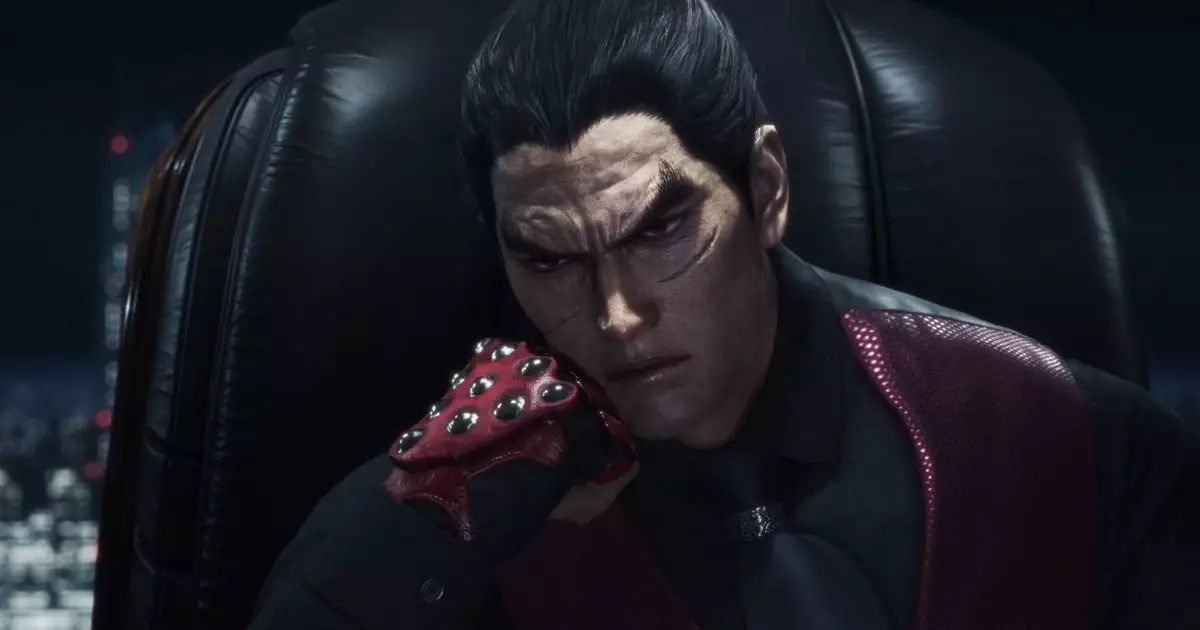Game development is often perceived as an exhilarating and innovative endeavor, where creative minds transform fantastical ideas into interactive experiences. However, the reality is far removed from this glamorized vision. The stress that accompanies the release of a highly anticipated game can take a significant toll on developers, leading to detrimental health issues and emotional turmoil. The recent disclosures by Katsuhiro Harada, director of the revered Tekken series, exemplify the hidden costs of sitting at the helm of such creativity. Harada’s experience with the release of Tekken 4 in 2001 serves as a revealing case study in the pressure cooker environment of game development.
The Impact of Tekken 4
When Tekken 4 was launched, it faced a bafflingly lukewarm reception compared to its illustrious predecessors. The backlash not only impacted the game’s sales but also cast a long shadow of criticism over Harada and his team at Bandai Namco. The director’s recollection of experiencing a significant health decline, including a mysterious condition where hair on one side of his body vanished, underscores the acute pressure that can arise from public scrutiny and professional expectations. This phenomenon, while startling, draws attention to serious health conditions, such as stress-induced alopecia areata, that can manifest as a physical response to overwhelming anxiety.
In Harada’s words, the fallout from Tekken 4 was staggering. He candidly described a point where the stress of the job forced him to step back from his responsibilities, leading to a year-long hiatus from Namco. This acknowledgment cuts through the often glorified façade of the gaming industry, revealing the darker side of creative professions that is often brushed under the carpet. The stigma surrounding mental health issues in high-pressure jobs is not unique to gaming, but the insight from someone in Harada’s position offers a rare glimpse into the intersection of creativity and personal well-being in this particular field.
Critical Acclaim and the Twist of Time
Interestingly, Harada’s observations about the hindsight surrounding Tekken 4’s reception highlight a common dichotomy in the arts. It is human nature to romanticize past failures, after the dust of initial disappointment has settled. Initially, Tekken 4 faced criticism, but today some gamers hail it as a symbol of authenticity within the series. Harada’s comments about not having a single ally during the game’s production phase reflect the isolating experience of being a creative leader. The environment of collaboration can quickly flip to one of criticism when expectations are not met, leaving developers to shoulder the burden alone.
The evolution of opinions regarding Tekken 4 mirrors a broader narrative within the industry, wherein success and failure can be subjective qualities. As time progresses, criticisms fade, often leaving behind a nostalgic reverence for works once maligned. Harada’s assertion about the game’s retrospective praise not matching the reality of its initial reception punctuates the idea that success in creative ventures may be less about the product itself and more about the context surrounding it.
Looking Towards the Future
With the impending release of Tekken 8 and Harada’s continued leadership, it’s evident that the lessons gleaned from past struggles have not fallen on deaf ears. The turbulence faced during Tekken 4’s development is likely etched into his approach today, informing how the franchise navigates the challenges of modern gaming. As the industry evolves, the need for acknowledging the human side of game development grows imperative. Harada’s candidness encourages other creators to share their experiences openly, fostering a culture of understanding and support that could potentially alleviate the burdens faced by digital artisans.
As gamers eagerly anticipate new characters and gameplay mechanics, the shadows of Tekken’s history remind us that each pixel on the screen is a labor of love intertwined with the emotional stakes of its creators. Even as Tekken welcomes old characters back into its fold, the undercurrents of pressure and personal stories within game development remain essential narratives that deserve recognition. Growth both in gameplay and in the emotional resilience of developers is a testament to the journey that underpins the games we cherish.


Leave a Reply